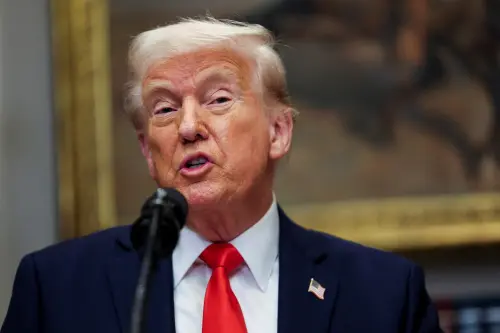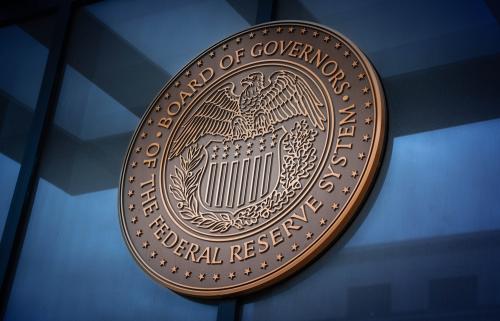Editor’s Note: Justice Antonin Scalia played a powerful role in shaping American jurisprudence since the early 1980s, first as a member of the United States Court of Appeals for the DC Circuit and then as Associate Justice of the United States Supreme Court. He spent much of his career devoted to public service, inspiring generations of young lawyers and judges. His impact on American law was outsized and his death will leave a deep void in the federal judiciary. The Center for Effective Public Management wishes the Scalia family well during this difficult time.
Justice Antonin Scalia’s death not only created an opening on the Supreme Court, but also ignited what will be one of the most intense political battles of the modern era. A liberal president with the constitutional obligation to nominate justices to the high court, a conservative Republican Senate with the constitutional obligation to advise and consent to nominations, and a competitive presidential election less than nine months away, all make the stakes in selecting Scalia’s successor quite high.
The president and the Senate have drawn lines in the sand. Obama is clearly committed to submitting a nomination. Senate Republicans—leadership, presidential candidates, and rank and file—are openly refusing the president without even an idea of who his pick will be. In the modern era of hyperpolarization, broken down decorum, and a flippant dismissal of the presidential role in the constitutional system, this all appears less than shocking and more politics-as-usual. Of course, there is a remarkable irony in the Senate’s preemptive intransigence. Congressional Republicans have spent seven years claiming every executive action the president takes is an unconstitutional abuse of power, and in Obama’s final year, the Senate is refusing to allow the president to exercise an explicit constitutional duty: the nomination of judges.
The political battle, however, is only part of the issue. Scalia’s death, regardless of his immediate replacement, signals something earth shattering for American jurisprudence over the next year. The Supreme Court will no longer be in the business of issuing conservative rulings. Before Saturday, the Supreme Court functioned according to a delicate balance. Four liberal justices and four conservative justices often held their breath to see how the Court’s swing vote, Justice Anthony Kennedy, would vote. That pivotal vote, sometimes with liberals and other times with conservatives, dictated the ideology of the Court’s most high-profile, divisive and controversial cases.
With Scalia’s seat empty, the Court can no longer muster five conservative votes. Kennedy can join Ginsberg, Breyer, Sotomayor, and Kagan to issue liberal rulings by a vote of 5-3, and with Scalia’s absence, the best conservatives can even hope for is a 4-4 tie. That 4-4 tie, at best, leaves in place a lower court ruling (which can be conservative), but does not have the authority of a Supreme Court opinion. If Scalia’s vacancy endures for some time, it can also motivate litigants to begin forum shopping—finding a US Court of Appeals circuit that will issue a “friendly” ruling, knowing that the Supreme Court will not have the votes to toss it out.
Until the United States Senate confirms Justice Scalia’s replacement, the Supreme Court will behave in one of two ways. The Court will enter into a holding pattern—with cases “undecided” by a 4-4 vote or delayed to a later term until the Court is fully staffed—or it will issue liberal rulings. Scalia’s death halted conservative jurisprudence on the Court. The only way in which the Supreme Court will be able to sustain some of its most high-profile conservative rulings over the past several decades on issues like voting rights (Shelby County v. Holder), campaign finance (Citizens United v. FEC; McCutcheon v. FEC), environmental regulation (Michigan v. EPA) would be if a Republican president were elected in November. If a Democrat succeeds Obama, Scalia’s death will also signal the death of conservative jurisprudence for some time. The above cases are likely to be reversed, and controversial issues like the death penalty, abortion, the power of unions, affirmative action, issues of equality, and many others will have a powerfully liberal flavor.
There is little reason to believe the Senate will not keep its word in delaying or rejecting any Obama nominee to the Supreme Court. In fact, my colleague Rick Lempert eloquently argued this morning about the political payoffs for the Senate to hold firm to that commitment. However, the American public could quickly grow tired of more partisan bickering keeping the nation’s highest court from maintaining full membership. An extended vacancy could hurt Republicans in the presidential race, and will likely have serious repercussions in Senate races—particularly among vulnerable Senate Republicans facing reelection (Ayotte [NH], Toomey [PA], Portman [OH], Johnson [WI], Kirk [IL]) and competitive open Senate seats (Florida, Nevada, California).
The US Constitution requires that Supreme Court justices be nominated by the president (even one in his last year in office) and confirmed by the Senate. They are not elected. However, in an interesting turn of events, the 2016 presidential election may be as much about selecting the new commander-in-chief as it is about “electing” a new justice to the US Supreme Court. If Obama is barred by the Senate from making a third pick for the high court, the 2016 election will mean one of two things for the Supreme Court and for American common law. If a Republican is elected in November, the Court will look a lot like it did before Scalia’s death. If a Democrat succeeds Obama, the Court’s conservatism will be buried with its first Italian-American justice.
The Brookings Institution is committed to quality, independence, and impact.
We are supported by a diverse array of funders. In line with our values and policies, each Brookings publication represents the sole views of its author(s).



Commentary
How Scalia’s death may have killed Supreme Court conservatism
February 15, 2016